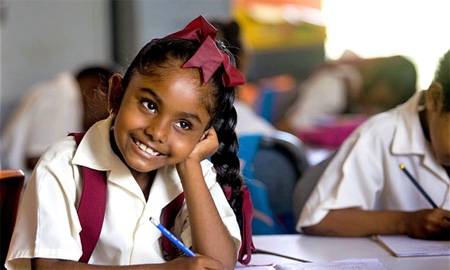The project heralds the beginning of a strengthened partnership between Cameroon’s Ministry of Basic Education, UNICEF, the US Government, UN partners, non-governmental organisations and the private sector. According to UNICEF country representative Ora Musa Clemens-Hope, gender disparities still exist and in the far north “there is a 30 per cent gap in enrolment between girls and boys, while 40 per cent of girls who start school don’t complete the primary cycle.”
The initiative entails a public awareness campaign to change behaviour towards girls’ education in rural areas by involving families and communities in the management of schools and providing sessions to equip parents to better supervise their young children. Two other initiatives, namely Child Friendly Schools and Big Sisters, will focus on empowering girls with knowledge of children’s rights and building relationships between girls and older women, who will act as mentors, watching over and helping the younger students with their learning. Although gender parity remains a challenge, great progress has been made since the Government announced free primary education for all 11 years ago and it has been applauded for its support and political will to advance better learning achievements for all.

0 COMMENTS